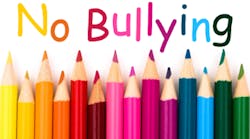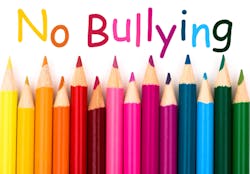Dental hygiene careers: Have you encountered the professional bully?
By Jasmin Haley, RDH, BSDH, CDA
Bullying behavior can occur throughout different phases in our lives. It does not discriminate and can happen in our profession whether it be in clinical dental hygiene, academia, research, corporate, a professional association, or social networking. Professional bullying can create negative, unproductive, and toxic cultures within an organization.
The ramifications of bullying behavior can affect work culture for years, often resulting in high turnover rates, psychological harm of its members, and ultimately the stunting of the organization’s growth. Many endure professional bullying in fear of losing their job, appearing weak, or they're in denial of the harmful behavior. It is important that as professionals we identify what professional bullying is, recognize the signs and symptoms, and identify various strategies that combat bullying. This article will cover the identification and recognition of professional bullying.
The societal culture of shame, fear, and competitiveness reveals that bullying has no age or educational limits. Bullying is often identified as an occurrence that occurs only among youths. The more professionals I’ve been privileged to connect with reveal that there are more incidences of professional bullying than we acknowledge. It is up to us to prepare, identify, and immediately address any form of professional bullying.
What is bullying?
Professional bullying is often labeled as workplace bullying. The definition of workplace bullying is "repeated, health-harming mistreatment of one or more persons (the targets) by one or more perpetrators. It is abusive conduct that is: Threatening, humiliating, intimidating, work interference-sabotage-which prevents work from getting done, or verbal abuse."(1)
Some work-related terms that appear in institutional professional development courses are “incivility, difficult people, personality conflict, ill-treatment, psychological harassment, or emotional abuse at work.”(1) Any label given that falls within this category of behavior is considered bullying.
Why me? Why was I chosen as a target?
The reasons for workplace bullying is often the opposite of the reasons found in grade school. Targets of workplace bullying are not considered the "loner, lacking social skills, or the least liked among a group.”(2)Victims are often chosen by the offenders because they are “more technically skilled, whistleblowers for unethical practices, non-confrontational, independent, better liked, or have greater emotional intelligence.”(2)
Many professional bullies are insecure and display these insecurities with bullying behavior. When a professional is experiencing bullying they often ask themselves, “Why me?” It is important to understand that the offender’s behavior is out of their control. Although they may be unable to control their offender’s actions, they should never ignore it.
Will ignoring the behavior help?
A peaceful environment will not be created when the target or bystanders ignore the bullying behavior. Avoiding or not recognizing the signs of bullying behavior often leads to escalation that ultimately affects the target, bystanders, and the cultural environment of the organization. Some adults who encounter this behavior are encouraged to ignore it and let it pass. Some bystanders may acknowledge and recognize the bullying or harassment, yet provide no resolutions to stop the behavior.
Why does it matter? If left alone, the offender may increase their efforts.(3) You must recognize the signs of bullying and realize this type of behavior should never be present in the workplace or any professional organization. According to Workplace Bullying Institute (WBI), "the longer it takes for you to discover what has happened the greater the likelihood that stress has begun to erode your health."(3)
The WBI states that prolonged bullying leads to:(3)
- Cardiovascular problems such as hypertension, strokes, and heart attacks
- Neurological changes
- Gastrointestinal issues
- Immunological impairment
- Autoimmune disorders
- Fibromyalgia, chronic fatigue syndrome
- Skin disorder
What we fail to remember
Our self-worth is the responsibility of ourselves alone. Any attempts to change the disposition of another person, especially a bully, is futile.
My personal experiences with professional bullying have lead me on the journey of self-compassion and self-care. I hid the bullying behavior from my loving husband and family thinking it would resolve on its own.
Frequent visits to the ER for extreme stomach pain, nausea, and headaches were not enough to awaken my senses to make a change. Ultimately, my condition began affecting my family life. It was then I recognized the time for change. Whether changing your environment, seeking personal development or therapy, it is your right to say you've had enough of hostile behavior. You must put your physical well-being and your family as top priority.
There are strategies we can take to start the healing process and to combat professional bullying. Readers, if you are experiencing targeted behavior that makes you feel unsafe, gives you anxiety, or is hostile, you are not alone. If you have not experienced this unwanted behavior start the conversation now to avoid creating a culture where this behavior is acceptable. If we band together to remove a culture of incivility, we will create centers of excellence that will continue to grow future leaders and influencers in our profession.
While I plan to write more about standing up to professional bullies in the future, readers may be interested in listening to podcasts I have conducted on the topic here.
Jasmin Haley, RDH, BSDH, CDA, is the founder and CEO of Beyond the Prophy LLC, co-host of the MOMgienists Podcast, and adjunct faculty of dental hygiene at a community college. She has 15 years combined experience in the dental field as a dental hygiene educator, clinician, and dental assistant. Haley’s interests include HIV/AIDS, cultural competency, and dental public health. She offers continuing dental education and can be reached at [email protected].
References
- Workplace Bullying Institute. 2015. The WBI definition of workplace bullying. Retrieved from: http://www.workplacebullying.org/individuals/problem/definition/
- Workplace Bullying Institute. 2015. Who gets targeted. Retrieved from: http://www.workplacebullying.org/individuals/problem/who-gets-targeted/
- Workplace Bullying Institute. 2015. You could be bullied at work and not recognize it…know the signs. Retrieved from: http://www.workplacebullying.org/individuals/problem/early-signs/








